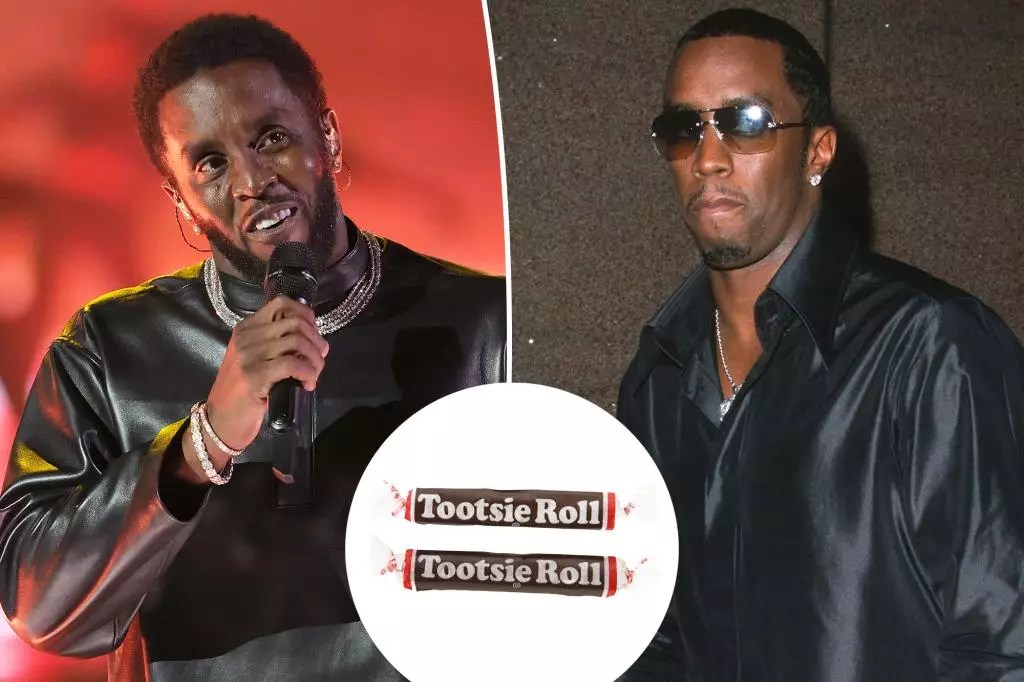In the glitzy world of celebrities, where privilege often mutes accountability, the recent allegations against Sean “Diddy” Combs reveal a sordid tale that transcends mere scandal. A civil lawsuit filed by an anonymous woman, identified as Jane Doe, alleges that the music mogul engaged in horrific acts of sexual violence back in 2001. This is not simply another case of a celebrity accused; it threatens to shatter the veneer of invincibility that surrounds prominent figures in the entertainment industry.
The details of Jane Doe’s claims paint a grim picture of coercion and violence. She recounts her encounters with Combs, beginning innocently enough with their initial meeting at a nightclub. Yet, what followed illustrates a troubling dynamic of power imbalance—a familiar narrative that echoes through many sexual assault cases. The spectacle of glamorous nights out quickly devolves into a chilling space of fear and domination, where her voice was silenced amidst the physical threat posed by Combs.
A Chilling Narrative
At the heart of the lawsuit lies a particularly alarming encounter that reportedly took place after a night of partying. What initially appeared to be an exhilarating evening turned into a horror story as Jane Doe describes Combs’ aggression. The sobering details—being overpowered in a locked bedroom and threatened—provide a snapshot of fear that accompanies sexual violence. Her experience challenges the glamor often associated with celebrity culture and sheds light on how power can corrupt, turning what was meant to be escape and revelry into an unsettling nightmare.
The grotesque visual selected by Doe to describe Combs’ anatomy serves as a striking metaphor for her perception of the assault. By diminishing the alleged perpetrator’s masculine power to something akin to “the size of a large Tootsie Roll,” she introduces a jarring juxtaposition of humor and horror, encapsulating her own emotional detachment as a survival mechanism in the face of trauma. This reveals her inner turmoil—a mix of disbelief and powerless acceptance in the moment of violation.
Psychological Repercussions and the Quest for Justice
Emerging from this traumatic experience, Jane Doe sought therapy to begin healing. The psychological aftermath of such an incident can be profound, often leaving lasting scars on the victim’s emotional health. Her decision to not respond to Combs’ calls after the incident illustrates a form of self-preservation—dismissing the very source of her trauma. It raises critical questions about the accountability of powerful individuals who wield their status to manipulate and violate others.
While the lawsuit has garnered significant media attention, it is vital to recognize that these allegations are part of a larger narrative centered around the prevalence of sexual misconduct within elite circles. The challenge often lies in the societal tendency to dismiss accusations against the influential, echoing a “he said, she said” mentality that enables perpetrators to evade justice. Combs’ legal team’s insistence on his innocence reflects a broader argument often employed by the accused: that such lawsuits are motivated by personal gain rather than a pursuit of justice. But as many survivors know, the toll of speaking out can be devastating.
The Cultural Reckoning
Sean Combs’ case is not an isolated incident but is emblematic of a cultural reckoning that examines the intersections of power, fame, and violence. While the legal proceedings will unfold in the public eye, what remains undeniable is the imperative for society to listen—to provide support for victims and a platform for their stories. The legal system must rise to the occasion, addressing both the accusations and the larger cultural implications of such behaviors.
The emergence of Jane Doe’s voice and the courage it takes to confront a figure as significant as Combs is monumental. It reflects a collective shift toward believing survivors, fostering an environment that can dismantle the protective shields that have historically engulfed the powerful. In the end, the pursuit of accountability for actions must overshadow the glittering allure of fame, ensuring a future where justice prevails over silence.







Leave a Reply